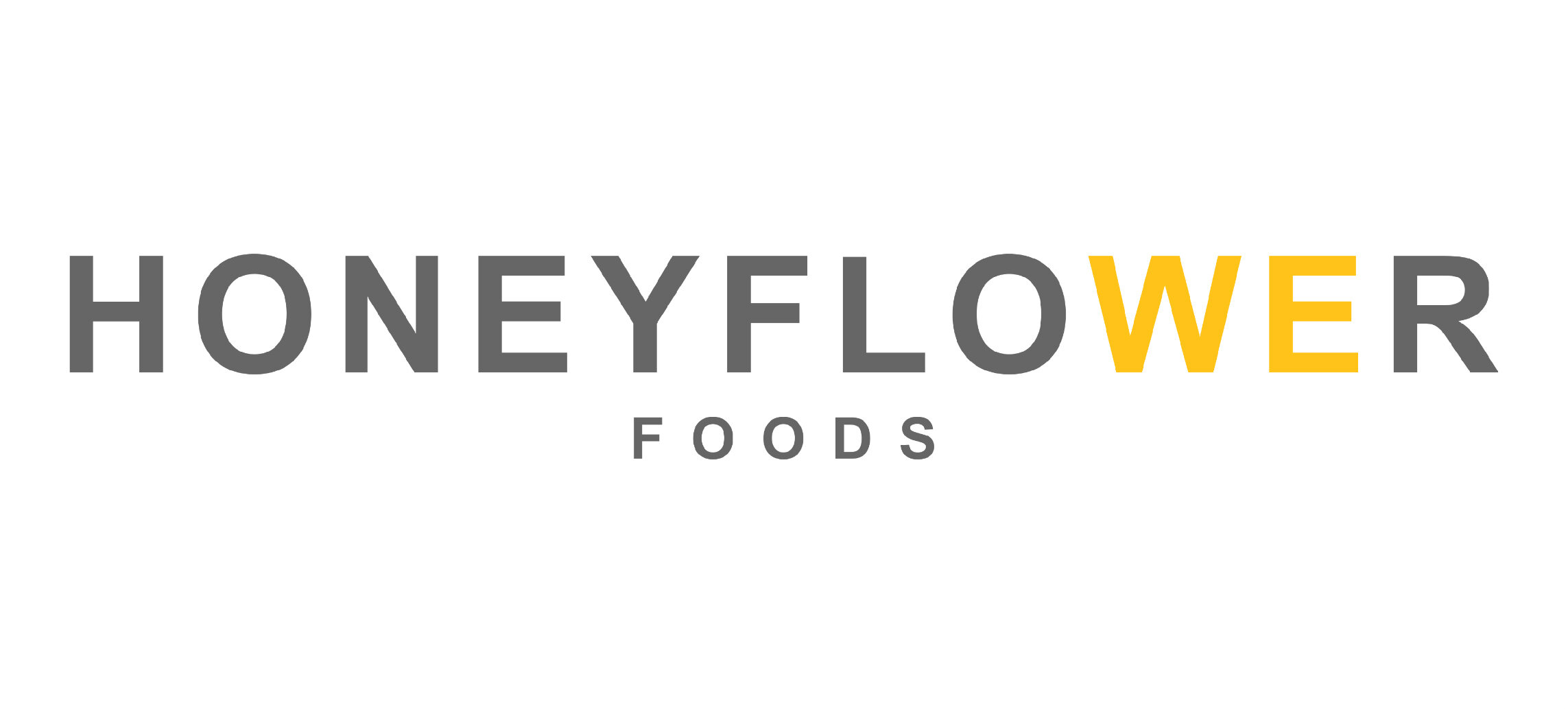Let’s talk about packaging
A super hot topic at the moment, packaging is getting its 15 minutes of fame and for all the right reasons.
It is everywhere, and it is the worst. From to-go coffee cups to single-serving yogurts and sandwiches and we simply can’t get away from packaging, plastics and single use.
One of our pillars here at HoneyFlower Foods is 0 waste. We work towards it when we make our food, and we think carefully about it when we package it.
You’ve probably heard it before, but we can’t forget it: more than 300 million tons of plastic are produced every year! Almost half of this is disposable packaging, which is often only used for a few minutes but lives on for hundreds and hundreds of years in landfills and in our oceans, killing millions of marine animals each year. Think of a plastic shopping bag, who’s average lifespan is 12 minutes as it holds items being transported from one place to another. That bag – after its 12 minutes of use - will take at least the next half a century to biodegrade. The estimates of how long it takes for plastic to biodegrade range from 450 years to never.
The bottom line is that our plastic problem isn't going to be solved quickly, or at all without some effort from all of us.
Here’s a couple quick notes on the current status of waste -
Most of our waste gets dumped in landfills, where it is compacted and then covered by tons and tons of more garbage. Without oxygen, this waste breaks down in an anaerobic process, which eventually releases methane, a greenhouse gas that is 25 times more dangerous than carbon dioxide. Not good.
Good news though, everything that doesn’t go to landfill is starting to be more conscientiously managed. Many countries have developed successful recycling programs - Austria and Germany have the highest recycling rates but the US isn’t too far behind.
Reduce reuse recycle. This means to reduce our waste, reuse items again, and recycle when we can’t use something again.
Fortunately, some single use plastics can be recycled! A great example, a lot can be done on a personal level by reusing items. There are easy steps for how to reuse at home, or move toward zero waste living.
A helpful hint: to be recycled, plastic has to be clean, so please wash your plastic before putting it in the recycling bin. See some best practices.
Recycling helps eliminate waste but we have a long way to go. Only about 9% of plastic is actually being recycled while more than 8 million tons of plastic is making it way into our oceans. Better systems for collection, sorting, and community habits are critical to improving these numbers.
Composting is another way to reduce, reuse and recycle. This process puts organic waste to an alternative use. Compostable refers to items where it's microbes can break down into carbon dioxide, water, inorganic compounds at a rate consistent with other compostable materials, over a reasonable period of time (not years and years or maybe never!). Composting creates fertilizer and improves soil health because it returns valuable nutrients to the earth to help maintain soil quality. It also doesn’t leave toxic residue behind because it’s already organic.
Composting is a great solution to reducing waste and making lighter impacts on energy and water consumption and emission of pollution and toxins.That’s why we use compostable packing for all our meals. Our packaging is corn-based, made with plant fibers. It is 100% compostable certified from World Centric. There are still some complications with this process namely in facilities and collection but it has made great strides over the last few decades and we see this as an awesome area of development for waste management. A better cleaner future…
Our goal is to help contribute to a better, healthier, more sustainable future and we see waste management as a key component of that. We see the need to move away from an overabundance of plastic waste, and are doing our part to find sustainable alternatives. In an effort to drive towards a more sustainable world, we partnered with like-minded companies like Kekobox! With our great partner Industrious DC (A DC based co-working space), we serve their members our two breakfast pots in a reusable Kekobox jar. Reusable jars means no waste!
There is still so much we need to do to move toward a zero waste world, but even our little steps in the right direction can make an impact. Help us move toward a more sustainable world! Just another reason to pick up one of our meals :)

